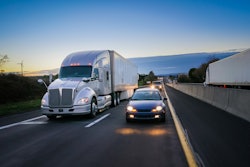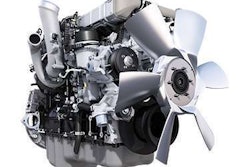Webster’s Dictionary defines resilience as “an ability to recover from or adjust to misfortune or change.” Resilience has defined human history. From wars to pandemics, to droughts to floods, to economic crashes to hurricanes, tsunamis and tornadoes we’ve been through a lot. Yet despite all the things that have been thrown at us, we humans carry on.
 Rick Mihelic is the director of Future Technology Studies for the North American Council for Freight Efficiency (NACFE)
Rick Mihelic is the director of Future Technology Studies for the North American Council for Freight Efficiency (NACFE)Resilience is also necessary in the trucking industry. The inspiring response of freight haulers to COVID-19 demonstrates just how resilient they are and, as most people have finally come to realize, just how essential they are.
It is the near universal use of trucks with diesel engines that has enabled this latest demonstration of the trucking industry’s resilience.
North American Council for Freight Efficiency (NACFE) — along with many others including Daimler’s Martin Daum — believes that the future is electric. But I can’t help but wonder how manufacturers are going to go about making the electric future resilient. Electric motors, batteries and even the electric grid itself have all been around for as long as diesel engines. Electricity powers our everyday life, so surely it must be as resilient as diesel, right?
Interestingly, transportation uses less than 1% of today’s electric energy, according to the U.S. Department of Energy’s Lawrence Livermore National Laboratory and the Energy Information Administration. Electric vehicles have not yet scratched the surface of tapping into electric energy use. How resilient will electric vehicles be when 5%, 10% or 20% of electric energy is going to transportation?
Events like the recent wildfires in California, Hurricane Harvey in Houston or the earthquake and tsunami in Fukushima demonstrate that even normally stable energy supply systems have weaknesses. In all three of these cases, whether electric power or liquid fuels, the energy delivery systems were disrupted by significant natural catastrophe.
So, I ask the question: will electric vehicles, including hydrogen based fuel cells, prove to be as resilient as today’s diesel trucks that are getting us through COVID-19?
That resiliency is the challenge for truck manufacturers, utility companies, charging system manufacturers and policy makers. They need to make sure when we are all-in with electric that it is as good as or better than the resiliency of diesel.
The industry is already thinking about ways to be resilient. For example, including on-site battery storage and micro-grid solar and wind generation to offload risks from the grid. There’s a story — maybe an urban myth — where a Tesla owner in California during power blackout resulting from wildfires used his Tesla to power his house refrigerator and TV. There are school buses acting as vehicle-to-grid battery storage systems to help. Amazon is putting millions of solar panels on their warehouse roofs.
These are a great start at being resilient, but we will need more. And I believe we will see it.
Rick Mihelic is NACFE’s Director of Emerging Technology Studies. He has authored Guidance Reports on electric medium- and heavy-duty trucks, thought leadership papers on regional haul and defining production and Confidence Reports on determining efficiency, tractor aerodynamics, trailer aerodynamics, two truck platooning. President of Mihelic Vehicle Consulting LLC, he has 38 years’ experience in aerospace engineering and the trucking industry including 20 years in commercial vehicle development for Peterbilt. He was involved in the development of aerodynamic vehicles and groundbreaking systems including the Peterbilt/Cummins DOE SuperTruck. He was awarded the prestigious SAE L. Ray Buckendale Award in 2016.











